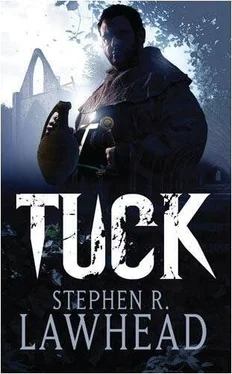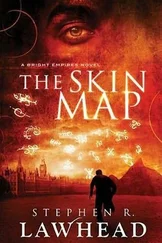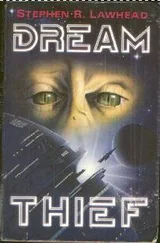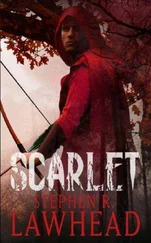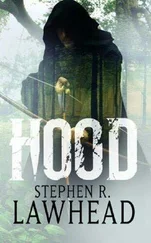Stephen Lawhead - Tuck
Здесь есть возможность читать онлайн «Stephen Lawhead - Tuck» весь текст электронной книги совершенно бесплатно (целиком полную версию без сокращений). В некоторых случаях можно слушать аудио, скачать через торрент в формате fb2 и присутствует краткое содержание. Жанр: Фэнтези, на английском языке. Описание произведения, (предисловие) а так же отзывы посетителей доступны на портале библиотеки ЛибКат.
- Название:Tuck
- Автор:
- Жанр:
- Год:неизвестен
- ISBN:нет данных
- Рейтинг книги:4 / 5. Голосов: 1
-
Избранное:Добавить в избранное
- Отзывы:
-
Ваша оценка:
- 80
- 1
- 2
- 3
- 4
- 5
Tuck: краткое содержание, описание и аннотация
Предлагаем к чтению аннотацию, описание, краткое содержание или предисловие (зависит от того, что написал сам автор книги «Tuck»). Если вы не нашли необходимую информацию о книге — напишите в комментариях, мы постараемся отыскать её.
Tuck — читать онлайн бесплатно полную книгу (весь текст) целиком
Ниже представлен текст книги, разбитый по страницам. Система сохранения места последней прочитанной страницы, позволяет с удобством читать онлайн бесплатно книгу «Tuck», без необходимости каждый раз заново искать на чём Вы остановились. Поставьте закладку, и сможете в любой момент перейти на страницу, на которой закончили чтение.
Интервал:
Закладка:
"Splendido!" cried the count. Through Alan, he continued, "It will give me a chance to try the hounds I am buying."
Again, a slight hint of a grimace crossed the earl's face. He did not like the idea of using valuable dogs for such dangerous sport-especially, considered Tuck, dogs that had not yet been purchased. This required a small conference, whereuponBut, rising to the bait, the earl shrugged off his misgivings. "Why not?" he roared, stirring the feast to life once more. "Why not, I say! Here! Let us drink to the count, and to tomorrow's sport!"
Thus, the trap was set and sprung, and the prey neatly captured. Tuck waited until the festivity slowly resumed, and when the music and drink were once again in full spate, he rose. Bowing to their host, who had recovered his good cheer, he approached the earl's chair and, with Alan's help, declared, "This game you propose sits ill with me, I do confess, my lord."
"Does it?" he replied lazily. "Does it indeed? How so, pray?"
"The hunting of men is an abomination before the throne of God." Before the earl could reply, he added, "True, it is a custom long honoured in Spain and elsewhere, but one that the church does not endorse."
This rocked the old wolf back a step or two. He frowned and swirled the wine in his cup. "If I told you that this rogue of a prisoner has earned his death ten times over, would that make it sit more comfortably with you?"
"Perhaps," Tuck allowed. "Though I would still wish to give the wretch the benefit of absolution. By your leave, Earl, I will hear his confession and shrive him now. Then he will be ready to face his ordeal with a clear mind and clean soul."
Seeing that Bishop Balthus was determined, and he equally anxious to maintain his top-lofty dignity in the eyes of his guests, Earl Hugh agreed. "Then do so," he said, as if it had been his own idea all along. He put his nose in his cup once more. "Do so by all means, if it pleases you. One of my men will take you down to him."
Tuck thanked him, begged his dinner companions to excuse his absence, and then departed. In the company of the earl's seneschal, who was standing at the door, the friar made his way down and down into the low-vaulted under-castle, to the hostage pit, to see for the first time the man they had come to free. Leaving the hall and its uproar behind, they passed along a dark, narrow corridor to an even darker, more narrow passage through the castle inner wall to a round chamber below what must have been the guardhouse. "Attendre ici, s'il vous plait," said the seneschal, who disappeared up the steps to the room above, returning a few moments later with a dishevelled man who had very obviously been drug from his bed. Yawning, the guard applied a key to an iron grate that covered a hole in the floor, unlocked it, and pulled back the grate. He took up a torch from a basket on the floor, lit it from the candle in the seneschal's hand, and beckoned Bishop Balthus to follow. A short flight of spiral steps led them to another passage, at the end of which stood another iron grate which formed the door of a cell. Upon reaching the door, the guard thrust his torch closer, and in the fitful light of it Tuck saw the prisoner slumped against the wall with his head down, legs splayed before him, hands limp at his sides, palms upward. With his thick and matted tangle of hair and beard, he looked more like a bear dressed up in filthy rags than a man.
Once again, the guard plied the key, and after a few moments huffing and puffing, the lock gave and the door swung open, squealing on its rusted hinges like a tortured rat. The prisoner started at the sound, then looked around slowly, hardly raising his head. But he made no other move or sound.
Stepping past the gaoler, Tuck pushed the door open farther and, relieving the porter of his torch, entered the cell. It was a small, square room of unfinished stone with a wooden stool, a three-legged table, and a pile of rancid rushes in one corner for a bed. Although it stank of the slop bucket standing open beside the door, and vermin crawled in the mildewed rushes, the room was dry enough. Two bars of solid iron covered a square window near the top of one wall, and an iron ring was set into the opposite wall. To this ring was attached a heavy chain which was, in turn, clamped to the prisoner's leg.
"I will shrive him now," Tuck said to the guard.
The fellow settled himself to wait, leaning against the corridor wall. He picked his teeth and waited for the bishop to begin.
"You are welcome to stay, of course," said Tuck, speaking as the bishop. "Kneel down. I will shrive you too."
Understanding came slowly to the guard, but when it did he opened his mouth to protest.
"Come!" insisted the smiling bishop. "We all need shriving from time to time. Kneel down," he directed. "Or leave us in peace."
The gaoler regarded the prisoner, shrugged, and departed, taking the key with him. Tuck waited, and when he could no longer hear the man's footsteps on the stairs outside, he knelt down before the prisoner and declared in a loud voice, sure to be overheard, "Pax vobiscum"
The prisoner made no reply, nor gave any sign that he had heard.
"Lord Gruffydd, can you hear me? Are you well?" Tuck asked, his voice hushed.
At the sound of these words spoken in his own language by a priest, the king raised his head a little and, in a voice grown creaky from disuse, asked, "Who are you?"
"Friar Aethelfrith," Tuck replied softly. "I am with some others, and we have come to free you."
Gruffydd stared at him as if he could not make sense of what he had been told. "Free me?"
"Yes."
The captive king pondered this a moment, then asked, "How many are with you?"
"Three," Tuck said.
"It cannot be done," Gruffydd replied. His head sank down again. "Not with three hundred, much less three."
"Take heart," Tuck told him. "Do as I say and you will soon gain your freedom. Rouse yourself, and pay me heed now. I must tell you what to do, and we do not have much time."
CHAPTER 19
Count Rexindo and his entourage assembled in the yard to await the appearance of the earl and his men. The stable-hands and idlers in the yard-many who had been in the hall the night before-watched them with an interest they had not shown in several days. Word of the day's unusual sport had spread throughout the castle, and those who could had come to observe the spectacle for themselves. Under the gaze of the earl's court, Bran gathered his company at a mounting block near the stables and traced out the steps of his plan one last time. All listened intently, keenly aware of the grave importance of what lay before them. When he finished, Bran asked, "You gave Lord Gruffydd the oil, Tuck?"
"I did," the friar answered, "and Brocmael here has the clothes we bought."
Bran glanced at the young man, who patted a bulge beneath his cloak.
"Alan, you know what to say?" he asked, placing his hand on the fellow's shoulder and searching his face with his eyes.
"That I do, my lord. Come what may, I am ready. Never let it be said Alan a'Dale was ever at a loss for words."
"Well then," Bran said, gazing around the ring of faces. "It's going to be a long and dangerous day, God knows. But with the Good Lord's help we'll come through it none the worse."
"And the hounds?" asked Ifor.
"Leave them to me," answered Bran. There was a noise in the yard as the earl and his company-including the five Ffreinc noblemen they had feasted with the previous night-emerged from the doorway across the yard. He gave Brocmael and Ifor an encouraging slap on the back and sent them on their way. "To the horses, lads. See you keep your wits about you and all will be well."
As the two young Welshmen moved off to fetch their mounts, Bran composed himself as Count Rexindo; then, straightening himself, he turned, smiled, and offered a good-natured salute to Earl Hugh. Out of the side of his mouth, he said, "Pray for all you're worth, good friar. I would have God's aid and comfort on this day."
Читать дальшеИнтервал:
Закладка:
Похожие книги на «Tuck»
Представляем Вашему вниманию похожие книги на «Tuck» списком для выбора. Мы отобрали схожую по названию и смыслу литературу в надежде предоставить читателям больше вариантов отыскать новые, интересные, ещё непрочитанные произведения.
Обсуждение, отзывы о книге «Tuck» и просто собственные мнения читателей. Оставьте ваши комментарии, напишите, что Вы думаете о произведении, его смысле или главных героях. Укажите что конкретно понравилось, а что нет, и почему Вы так считаете.
